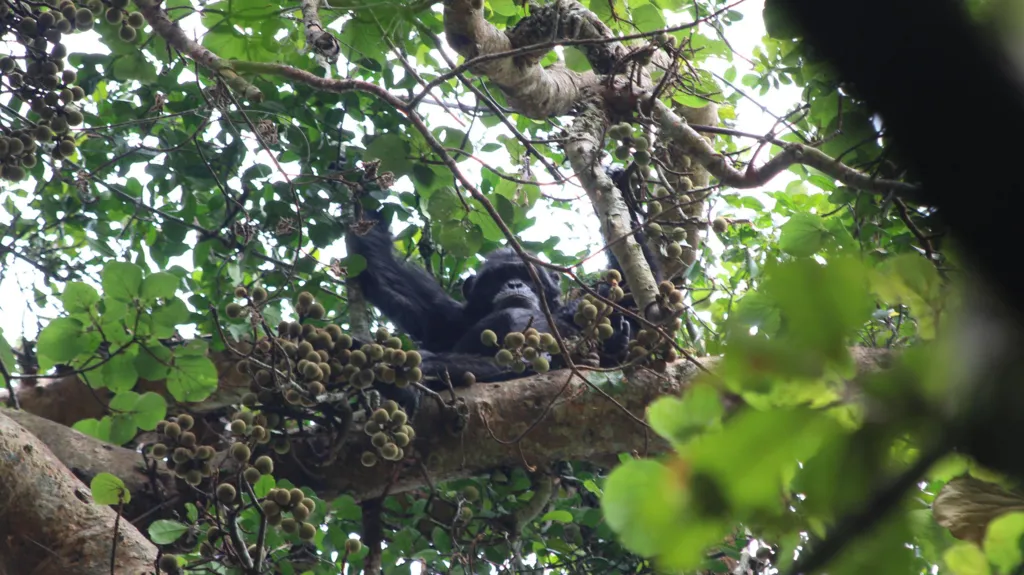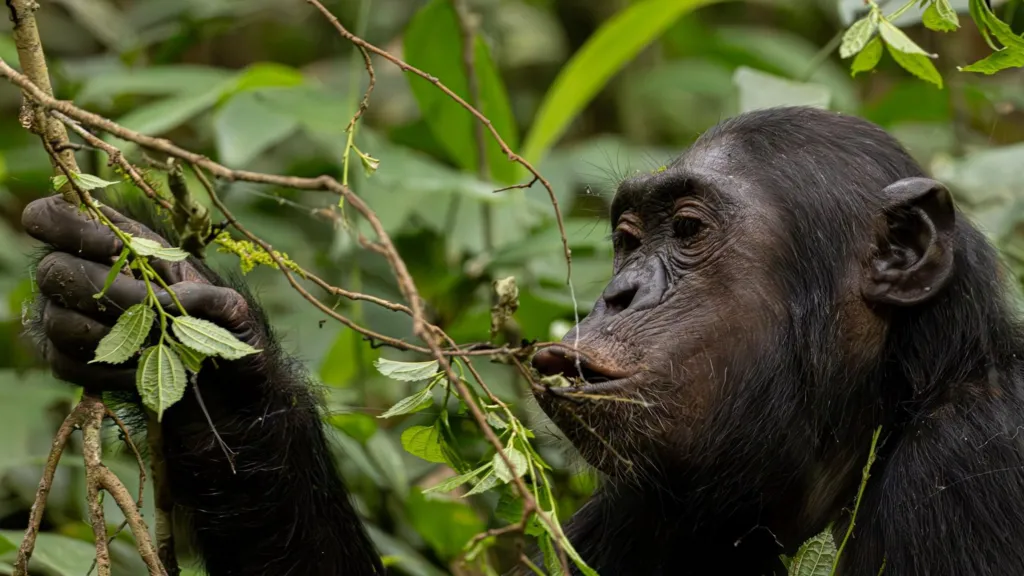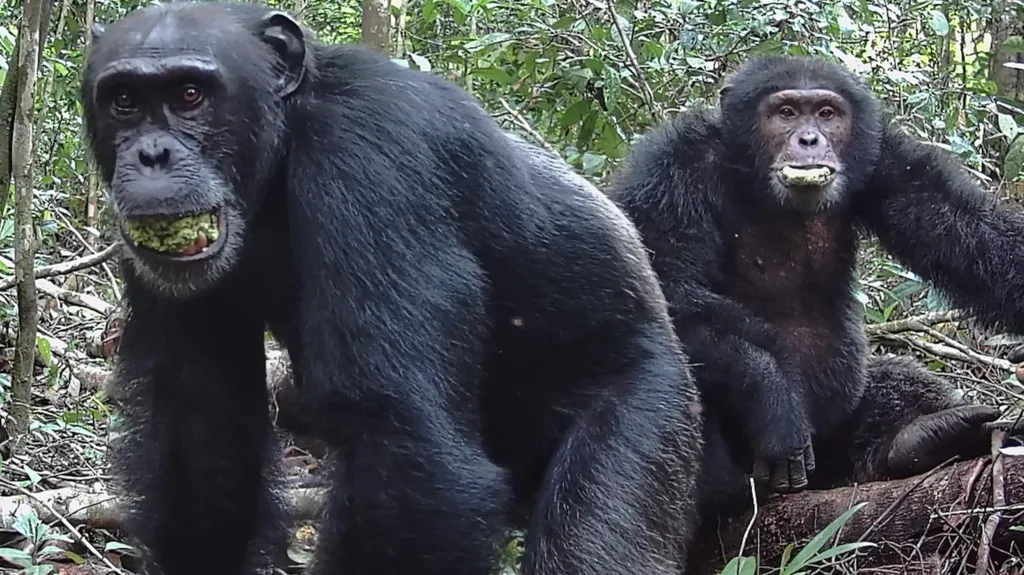Wild chimpanzees may be consuming the equivalent of a bottle of beer a day — not from breweries, but from feasting on naturally fermented fruit, researchers have discovered.
The study suggests that our own fondness for alcohol could trace back to a shared ancestor with primates that relied on ripened, fermenting fruit as a food source.
“Human attraction to alcohol probably arose from this dietary heritage,” explained study co-author Aleksey Maro of the University of California, Berkeley.

While chimps have often been spotted eating fallen fruit, this is the first research to estimate just how much alcohol they are actually ingesting. The team tested figs, plums, and other fruit collected in Côte d’Ivoire and Uganda, finding measurable levels of ethanol — the same type of alcohol in beer and wine.
Based on their daily diets, the chimps were consuming around 14 grams of ethanol, the rough equivalent of two UK alcohol units, or a 330ml bottle of lager. Interestingly, the fruits most preferred by the animals were also those with the highest alcohol content.
The results give fresh support to the so-called “drunken monkey hypothesis,” first proposed by Prof Robert Dudley, also at UC Berkeley, which suggests our evolutionary taste for alcohol emerged tens of millions of years ago.

“What we’re realising is that our relationship with alcohol goes deep into evolutionary time — perhaps 30 million years,” said Prof Catherine Hobaiter, a primatologist at the University of St Andrews, who was not involved in the study. “For chimpanzees, sharing fallen fruit may even help strengthen social bonds.”
However, the researchers stress that the chimps are not drinking enough to become intoxicated. “If they were getting drunk, it certainly wouldn’t improve their survival chances,” noted Dr Kimberley Hockings, a primate researcher at the University of Exeter.
Chimpanzees are listed as endangered by the International Union for the Conservation of Nature, facing threats from deforestation, logging, farming, and expanding human settlements.
